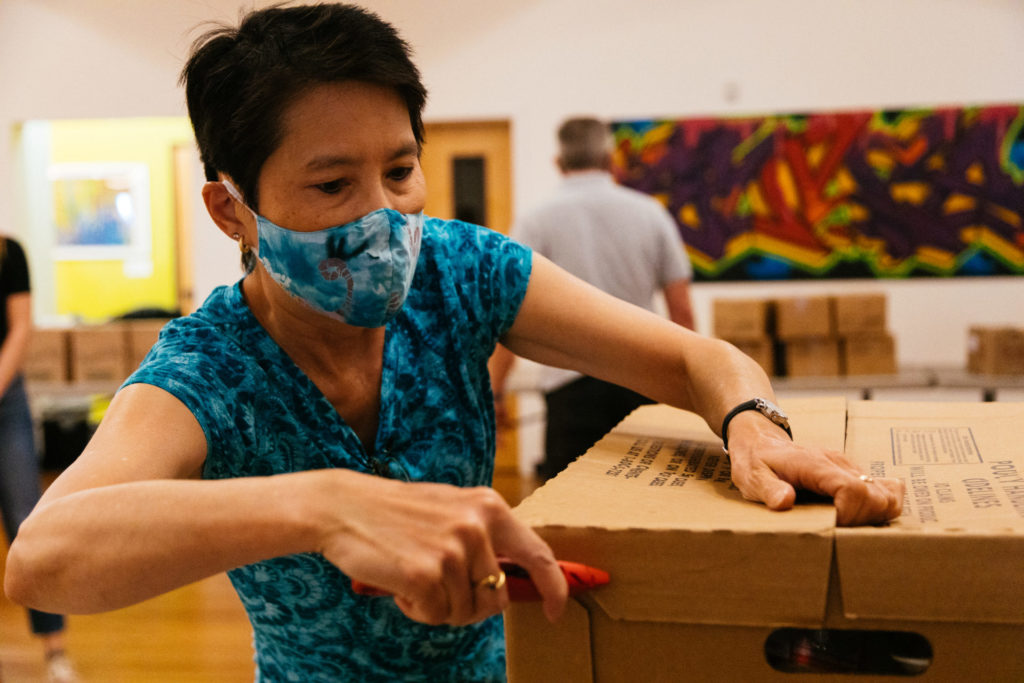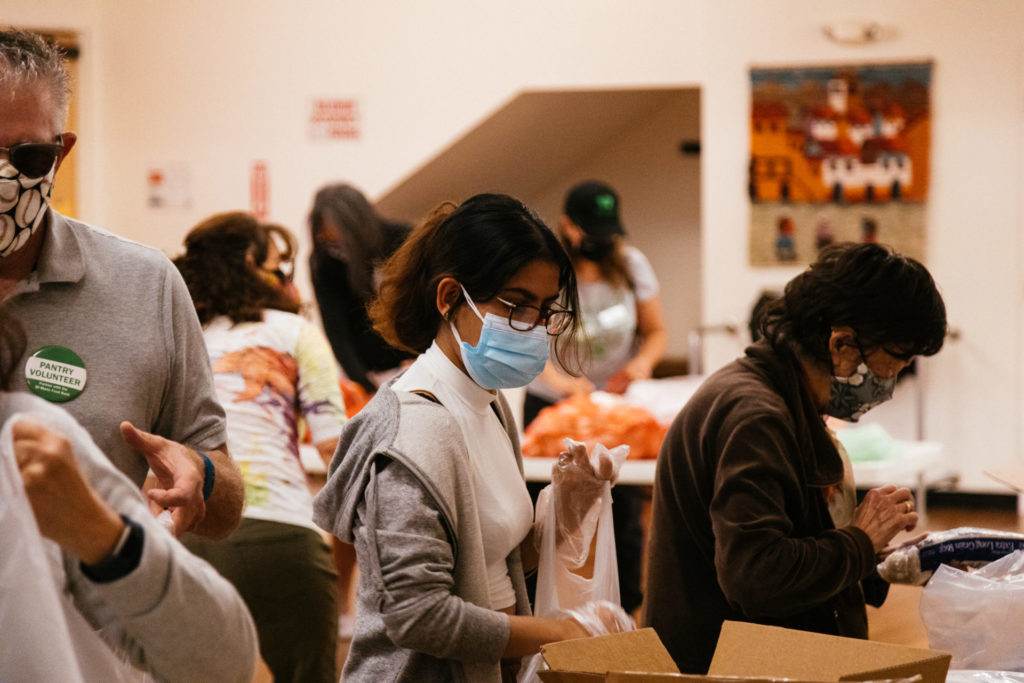You notice Booker T. Washington Community Center as soon as you round the corner of Presidio Avenue near the Fillmore – amongst the classical Victorian architecture of San Francisco, Booker T. is a modern structure of sleek steel and glass. Its left side stands a little taller than its right to accommodate the community center’s fifty Affordable Housing Units, and a pop of cheerful poppy-red marks the entrance to the building.
Booker T. serves the Fillmore and Western Addition neighborhoods in many critical ways. Among those fifty Affordable Housing Units are twenty-four apartments specifically designated for youth transitioning out of foster care, and the community center is also home to after-school programs for kids, classes for families, COVID-19 testing and vaccination sites, services for seniors, and a food pantry program that the San Francisco-Marin Food Bank helps supply.
Pandemic Response
COVID-19 has changed not only how the Food Bank operates, but also how our partners like Booker T. Washington distribute food to their communities. “Our food pantry program, we’ve been doing it for a while,” said Ryan Babbitt, Director of Programs at Booker T. Prior to the pandemic, their pantry operated very differently. “We had it in person – we had it more personal.”
When shelter-in-place was instituted, Booker T. had to transform their food pantry program. Shutting down during the pandemic or only offering in-person service would have severely impacted the seniors that depend on their services. Seniors make up a significant portion of participants at the Food Bank and our partner pantries. That’s a trend we see at the state and national level, too – in 2019, 12% of seniors in California are food insecure. What’s equally concerning is that 63% of those hungry seniors have had to make the choice between paying for food and paying for their medications. according to a study by Feeding America. These statistics are from 2019, before COVID reared its head.
We don’t have data on senior hunger in the time of the coronavirus yet, but a look at how the virus changed daily life gives some clues. Those over 65 are particularly vulnerable to COVID-19, which made going to a neighborhood food pantry a very risky option. That’s why Booker T. adapted their program. With help from the Food Bank and Project Open Hand, another food security nonprofit in San Francisco, seniors and other homebound neighbors in Western Addition and the Fillmore have access to either home-delivered groceries or a healthy frozen meal every day of the week.
“You receive food, and you also help out. It’s amazing,” confirmed an elderly participant/volunteer at Booker T. named Phillip.
Looking Forward
Though new coronavirus variants have complicated the reopening many of us hoped for in the summer of 2021 – and seniors have remained cautious about coming to the Booker T. pantry – vaccines and routine masking mean that a few seniors have begun to trickle back through the community center’s doors. “We had one elderly lady come in yesterday. Her name is Ms. Blanchard, and she’s been a staple at Booker T. for over 30 years. And yesterday was the first time we’ve seen her and got to give her a hug, you know?” one staffer said with a smile. “She runs our bingo programs too. She’s so important to the neighborhood.”




Share